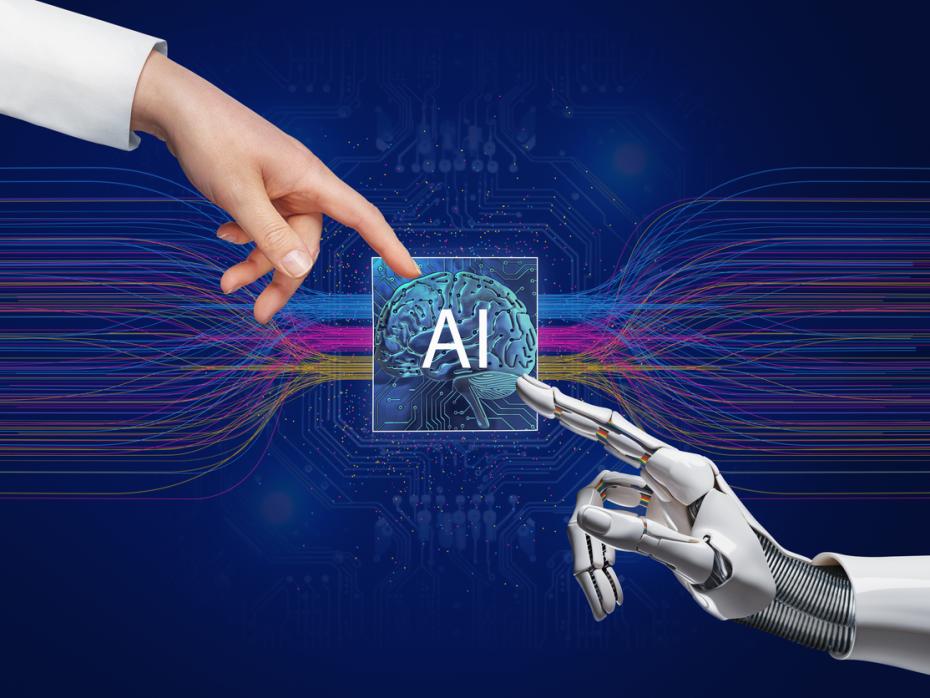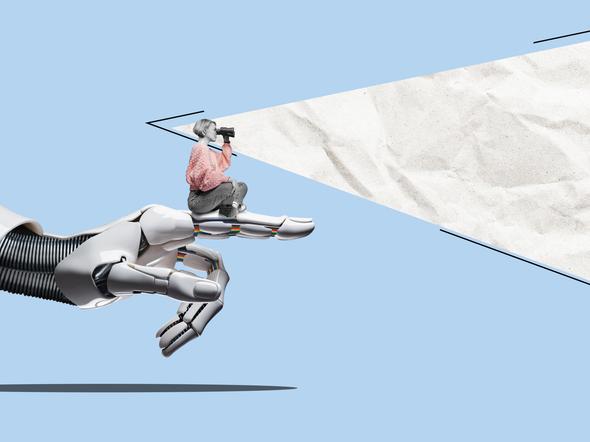The annual cycle of personal development reviews (PDRs) will be taking place over the summer months, and they’ll be happening this year against the backdrop of unprecedented financial pressure on universities to find efficiencies and make savings. Given reports that academics are already working increasingly long hours, many reviews may focus on how CPD can help staff to work more efficiently.
Generative AI offers significant potential in terms of delivering teaching and assessment practice efficiencies, by using AI to create learning materials or automating aspects of marking, for example. Corresponding training to support teaching and learning practitioners to make the most of such opportunities will no doubt feature in many institutional people development strategies and, in turn, automatically translate into individuals’ review objectives.
- Peer review as a collegial approach to educator development
- Are module leaders missing out on professional development?
- Online teachers need professional development, too
I suggest that those leading reviews for teaching and learning practitioners – academics and those working in the third space – include a more personalised objective alongside training, which focuses on use of GenAI in relation to scholarly output. This will provide practitioners, ranging from early adopters to those who have been slower to embrace AI, with opportunities to use GenAI in a way that is more commensurate with producing assessments. This can provide valuable insights into how students can be supported in their learning.
Additionally, I’ve seen first-hand how time pressures in teaching and assessment can squeeze dedicated time for scholarship – this is the reality for many right now.
It’s more important than ever to provide a dedicated personal development impetus to consider where GenAI could help make sustained scholarship more efficient.
Here’s what we should be prioritising when it comes to the use of GenAI.
Understanding AI
As GenAI becomes increasingly (and seamlessly) integrated into systems, scholars may unwittingly produce outputs without proper acknowledgement of AI – for instance, if automatic updates are applied. Teaching and learning practitioners need to familiarise themselves (and stay up to date) with exactly how GenAI is built into the software they’re using to produce scholarship outputs. How much data will GenAI retain, and for how long? This must be understood, especially when handling data that includes sensitive or confidential information.
A personal development review objective could address establishing how generative AI is integrated into commonly-used software and what strategy will be used to remain up to date with future developments. This could include attending in-house training and/or engaging in self-directed learning that addresses AI tool capabilities and limitations. In addition, reviewees might consult with heads of digital learning and data protection officers who would be able to provide specialist advice.
Ethical use
Considering the known bias in algorithms, data privacy, intellectual property and the potential impact on academic integrity, publishers have different positions on GenAI. Examples include Elsevier’s AI author policy or Taylor and Francis’ AI policy.
However, to maintain academic integrity, scholarly outputs must include an acknowledgement statement detailing how GenAI has been used. Examples to declare include editorial guidance, production of text, structuring paragraphs, editing sentences (such as using AI to check grammar and spelling or reduce word counts), translation of text and creation of images. Should AI be used as part of data analysis and/or visualisation then that should be detailed in a methodology section. Intended use of GenAI in research should always be explicitly indicated when seeking ethical approval. Similarly, authors must take full responsibility for using any AI-generated outputs.
An objective to address this might involve keeping a log of how GenAI has been used during the scholarship process. This would encompass all software used as part of authorship (including OpenAI, word-processing products and data analysis packages) and reflect different GenAI capabilities and integrations across these systems.
Not only would habitually keeping a log help to inform the wording of an AI usage declaration but could also be provided to a publisher to transparently demonstrate in detail how AI shaped the authorship process, if asked. Additional continuous professional development activities might include organising or participating in departmental discussions, reviewing literature or developing principles to inform for their own practice.
Coaching not co-authoring
GenAI is unable to take responsibility for the text it produces. Systems can’t independently respond to peer review feedback. Given that instances of GenAI fabricating information and making up citations have been widely reported, content produced must always be treated with caution and authors should always go back to original sources to verify accuracy. As such, GenAI should not be treated as a co-author. It’s perhaps better framed as a writing coach, to help authors to question and think through stages of their writing process.
Developing approaches to using GenAI in this manner could form the basis of an objective. Focus on developing approaches to instructing GenAI to provide feedback on extracts of text, rather than simply asking that text is automatically rewritten or corrected.
Reviews could also encourage teaching and learning practitioners to experiment with GenAI tools for specific scholarly activities, including low-stakes ones such as resource creation or blogging. Additionally, this could provide opportunities for practitioners to critically evaluate AI-generated content in terms of potential inaccuracies, biases and limitations, and know how to verify and refine outputs.
What does GenAI have to say?
Given the topic of this article, I couldn’t resist asking ChatGPT to write 100 words addressing what should be personal development priorities for an academic in terms of using GenAI for scholarship:
“For an academic, personal development priorities in using generative AI for scholarship should focus on understanding AI’s capabilities and limitations, staying informed on ethical implications, and integrating AI tools for research efficiency. Prioritise learning AI-assisted literature reviews, data analysis, and writing aids while maintaining academic rigour. Develop skills in AI-driven collaboration, such as co-authoring and idea generation, without compromising critical thinking. Stay updated on AI advancements, invest in ethical AI practices, and ensure transparency in AI’s role within research outputs. Finally, foster adaptability and a mindset of continuous learning to leverage AI’s evolving potential in academic work.”
So there it is, ChatGPT agrees.
Keep it up
Advances in GenAI are going to continue to progress at speed. Instead of seeing associated objectives as a one-off, consider them the basis for more fundamentally rethinking professional development planning to ensure that GenAI is routinely considered and optimally used.
In addition to staying informed about AI in education/research and reflecting on its impact, review conversations could also help identify and shape future work. For instance, encouraging practitioners to contribute to the development of institutional guidance or sharing best practices. It is my hope that the considerations highlighted in this article will be helpful for both reviewers and reviewees during review discussions.
Steve Briggs is director of learning and teaching excellence at the University of Bedfordshire.
If you would like advice and insight from academics and university staff delivered direct to your inbox each week, sign up for the Campus newsletter.




comment